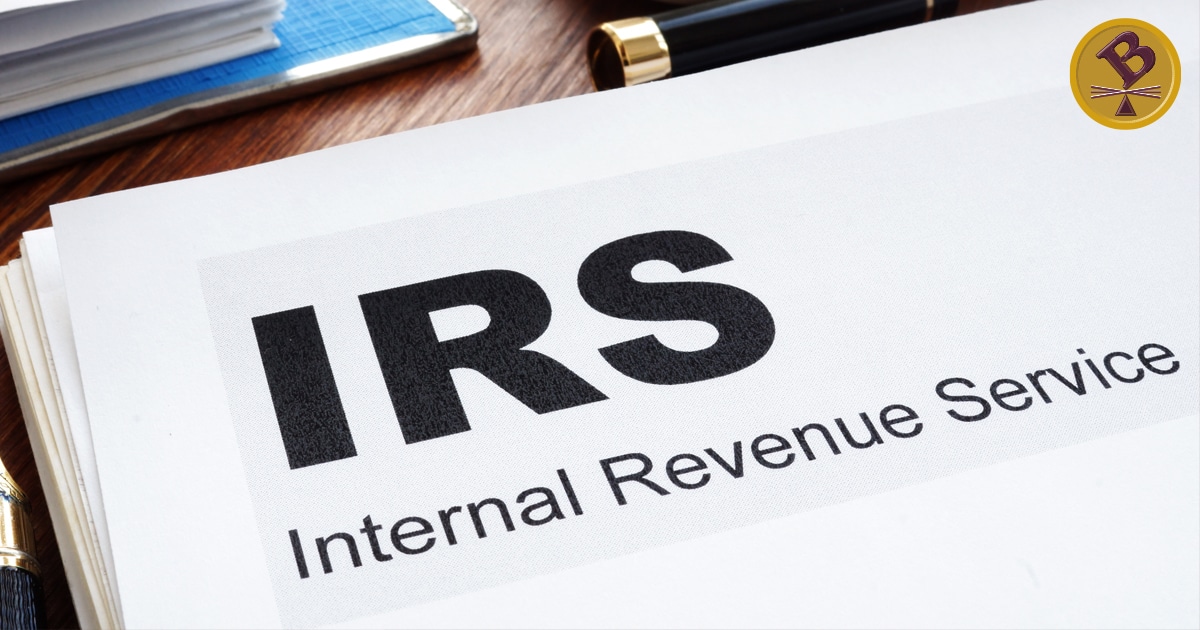Each year the IRS (Internal Revenue Service) mails many notices and letters to taxpayers for a variety of reasons. It’s important that you do not panic if you receive notification from the IRS, but you also do not want to ignore it. If you are unsure what is meant by the IRS letter you received, you can contact the IRS at the number provided in the letter or write to them.
Usually, the notification will specify what action needs to be taken next. This means that you can follow the instructions on the letter to determine what to do next. If you disagree with the IRS correspondence, contact the IRS office directly to clarify the issue.
This article will go over the details of what to do and why you might receive an IRS letter. Of course, if you have any questions, please contact our office for assistance with your IRS issue.
Why You Might Receive an IRS Letter
There are many reasons you might receive an IRS correspondence notification. If you owe a balance and it has not been paid, they may send you a letter. Also, if you are due a refund or need to make quarterly estimated tax payments, you may get a notification. If the IRS plans to audit you, they may send you an IRS audit letter explaining the details of the audit.
Sometimes, the IRS has incomplete information or has not received your tax return, so they may send you an IRS letter asking for said information or an IRS non-filing letter requesting that you submit your tax return as scheduled. If they only need additional information, you can send them a copy of your documentation. Never send original documents to the IRS.
If you get a notification from the IRS and disagree with what is being said, be sure to contact the IRS as soon as possible. It may take them a few weeks to get back in touch with you, so patience is the key when receiving an IRS letter. You can call the IRS at the number in the top corner of the notice you receive from them, or work with a tax professional who can help.
What You Should Do If You Receive an IRS Letter
If you disagree with the notice you have received, you should contact the IRS to let them know the correct information. If you have already submitted your IRS Form 1040 federal tax return, you should send them a copy of the tax return, which is proof you did file it on time correctly. If you are unsure if you did things right, work with a tax expert who knows the tax laws.
If you agree with the notification from the IRS, you should not have to contact the IRS unless you are required to submit information, make a payment, or get your tax return filed. If you agree with the IRS’s assessment of these items, you still do not need to contact them. Just follow the instructions on the IRS correspondence notification letter for the next course of action.
Even if you receive notice of an IRS tax audit, you will usually only need to submit information via mail or online to rectify your tax account. If the IRS does decide to do an in-person tax audit, you may want to have a qualified tax consultant with you to represent your interests.
Where to Contact the IRS
If you receive a letter from the IRS and decide to write back, allow them 30 days to respond to your letter. To contact the IRS, use the number at the top right-hand corner of the notice.
Alternatively, you can contact your local IRS office by using the IRS page: Contact Your Local IRS Office. It is best advised that you contact the number on the IRS letter you receive or write back to the IRS using the address on your notification letter.
Frequently Asked Questions
What does it mean if I got a letter from the IRS?
If you received an IRS letter, it might mean that they need additional tax information from you, such as certain documents that were not submitted with your annual tax return. They may need a copy of your Form W-2 or your backup documentation that goes with your federal tax return.
Is getting a letter from the IRS a bad thing?
Getting a letter from the IRS is not always a bad thing. There are plenty of cases when the IRS is notifying you of a tax refund check that is due to you that you may not be expecting. In cases such as that, you may receive funds you were not expecting, which is a good thing. Other times, they just want to notify you of something that requires no action on your part.
Will I get a letter from the IRS about my stimulus check?
Business Insider explains that receiving a letter does not mean you will receive a stimulus check. Most Americans received stimulus checks if they filed their tax returns in the past two years. Letters are being sent to those who did not file taxes because their income did not meet the tax filing threshold for tax years 2018 and 2019.
What does an IRS audit letter look like?
An IRS audit letter should have all of your contact information plus your tax identification number on it. It will also have the name of the IRS case officer who has been assigned your case plus his or her contact information. Make sure you read the letter carefully and follow all directions precisely when taking action on an IRS audit letter.
What kind of letters does the IRS send out?
The IRS may submit a letter to you regarding an outstanding tax balance you owe, a refund check that you are due, or estimated quarterly payments that need to be paid but they have not been received. The IRS does send out audit letters, but this is not always the case; not everyone gets audited as is sometimes a false belief among taxpayers.
In Conclusion
Have you received an IRS letter, notification, or audit letter? Are you worried about what it means for you and your family? Please realize that not all IRS notifications are bad things. The IRS may just want you to know some new information or have some questions that need to be answered by some additional information from you.
If you have received an IRS tax audit notification letter, it isn’t the end of the world. In fact, most IRS tax audit letters are just meant to let you know the IRS needs additional backup documentation to support your annual tax return. The majority of IRS audit notification letters are simple requests, not intrusive in-person audits.
Learn more about the facts and myths about audits in our Top 8 Myths and Facts about IRS Tax Audits: Know the Truth article. It has all-inclusive information about what myths are floating around out there and what is the truth.
If you are facing a tax audit, you can count on Indiana’s tax expert, Sherry Borshoff, to represent you. Also, please check out our complete survival guide to tax audits, so you can be completely prepared for what is in store for you if you do have a tax audit in your future. Read Your Complete Guide to Surviving a Tax Audit for more information.





